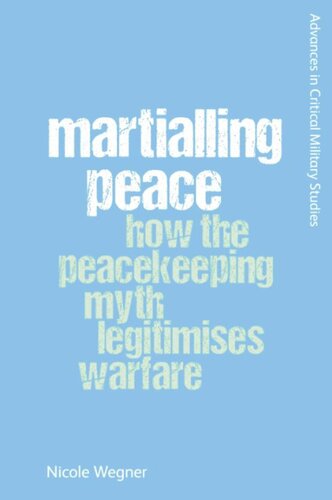

Most ebook files are in PDF format, so you can easily read them using various software such as Foxit Reader or directly on the Google Chrome browser.
Some ebook files are released by publishers in other formats such as .awz, .mobi, .epub, .fb2, etc. You may need to install specific software to read these formats on mobile/PC, such as Calibre.
Please read the tutorial at this link: https://ebookbell.com/faq
We offer FREE conversion to the popular formats you request; however, this may take some time. Therefore, right after payment, please email us, and we will try to provide the service as quickly as possible.
For some exceptional file formats or broken links (if any), please refrain from opening any disputes. Instead, email us first, and we will try to assist within a maximum of 6 hours.
EbookBell Team

5.0
58 reviewsThe peacekeeper—impartial, disciplined, helpful and restrained in their lethal capacity—is a powerful trope. This book examines the mythology of international peacekeeping and focuses on Canada as a case study of a "peacekeeper par excellence" (Jockel, 1994) and the ways the peacekeeping myth both challenged and condoned combat activities in Afghanistan between 2001 and 2014. While Afghanistan was explicitly not a peacekeeping mission, peacekeeping mythology circulated throughout discourse about the War. The book examines the salience of the peacekeeping myth throughout twelve years of Canadian combat activities in Afghanistan as a means to illustrate the adaptability and political utility of this (inter)national myth. It examines how gender, militarism, and nationalism operated in political discourse through the War in Afghanistan to justify military force and violence in the name of peace. The book draws on the Canadian case to address a broader set of questions related to how militarism, gender, and national myths are co-constitutive in condoning military violence of so-called "peaceful" liberal nations.